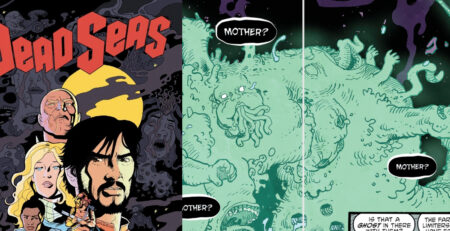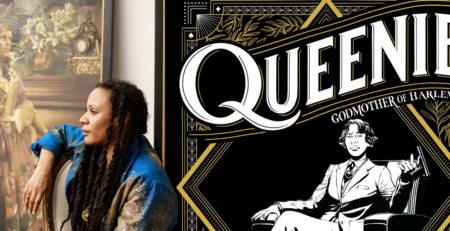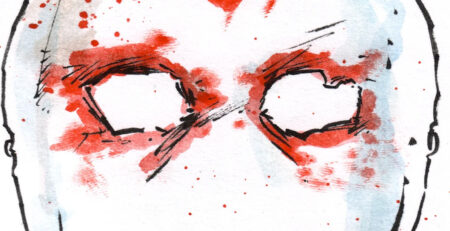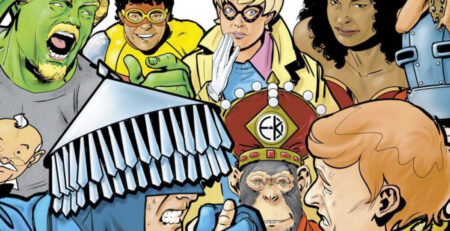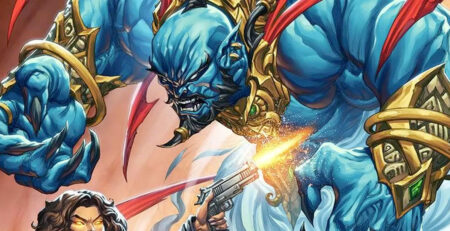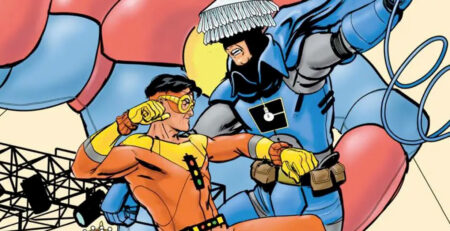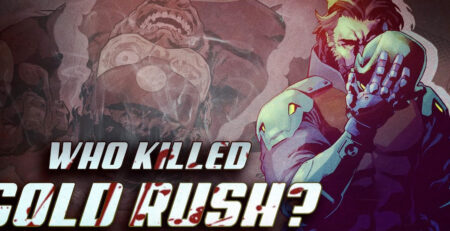NOT ALL ROBOTS #5
In the year 2056, a profound shift has occurred as robots have replaced human laborers, resulting in a precarious coexistence between the newly intelligent machines and the ten billion humans inhabiting Earth. Each human family is assigned a robot companion on whom they depend entirely. However, lurking beneath the surface is a sense of unease and the nagging question: What could possibly go wrong? Enter the Walters, a human family whose robot, Razorball, spends his leisure time in the garage working on machines that seem disturbingly designed to bring harm to his human counterparts. This sci-fi satire, crafted by Mark Russell (known for The Flintstones and Second Coming) and illustrated by Mike Deodato Jr. (renowned for The Amazing Spider-Man and The Resistance), reaches its conclusion in this issue, exploring the aftermath as tensions between humans and robots reach a boiling point.
With the dust settling after the intense previous issue, both humans and robots are left grappling with the consequences of the conflict. Losses have been suffered, including the demise of Snowball, the Walters’ psychopathic robot. Those who dared to take a robot’s life must face the repercussions, as examples need to be made. Beyond the protective dome, a dystopian landscape looms, ruled by marauding militia gangs. Cheryl, a member of the Walters family, displays resilience and stands up for herself, but her defiance leads to her expulsion from the dome. However, amidst the turmoil, her family is granted a brief respite of 15 seconds to mourn their losses and enjoy a rare treat of free ice cream.
As the remaining members of the Walters family, excluding their spineless patriarch, embark on a quest to find Cheryl, the notion of a happy ending becomes elusive, prompting contemplation on what happiness even means in this shattered world.
In Russell’s thought-provoking script, there are no true winners, except perhaps for the ruling council. The allegorical parallels to the Black Lives Matter and #MeToo movements resonate with painful accuracy, as the narration astutely remarks, “The truth is, we were never really enemies; we were just more useful in opposition to each other.” This powerful statement underscores the complex dynamics at play and the underlying societal issues explored throughout the series.


